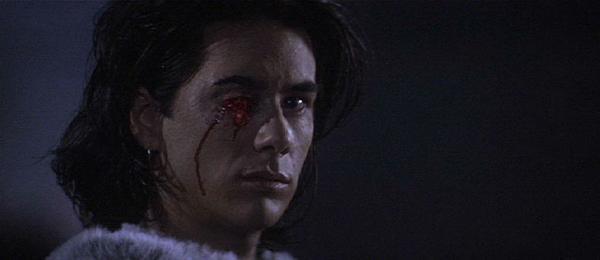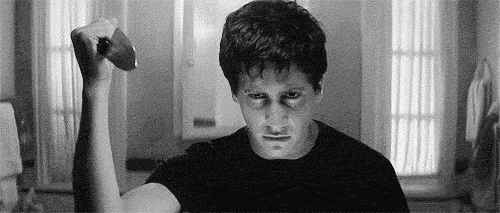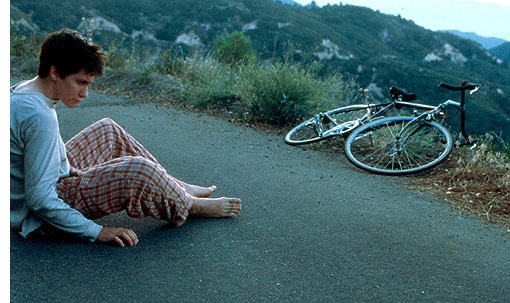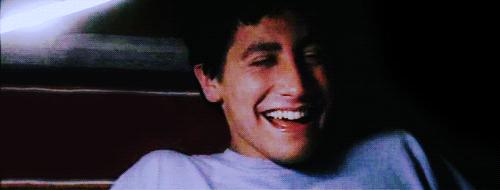For my first blog post under the “Books” heading (this heading will include both fiction and non-fiction), I will write a short, mostly impressionistic little article about one of my most favorite novels, David Foster Wallace‘s 1996 masterpiece, “Infinite Jest.”
Before I get going, I want to tell the reader what this blog post will not be. It will not be in any way “scholarly,” that is to say I will not apply any sort of literary filter to it. The impressions I will give will be my own, and as I am not preparing in any way for this blog post — and as my second reading of the novel in question was concluded almost a year ago — don’t expect any sort of deep insight from this post.
There are a great many essays available online which take a much more scholarly approach, such as this one, an essay which applies the philosophies of Ludwig Wittgenstein and Mikhail Bahktin to the text. I read this essay a while back, not long after I finished my second reading. A major theme of that essay has to do with how the characters in “Infinite Jest” are isolated from each other by the language they use to communicate: that is to say that while they are all (for the most part) speaking in English, their various slang terms and colloquialisms and dialects and grammatical structures and whatnot often hinder any sort of real communication between them. This same phenomenon happens in the real world: people often get into heated arguments over the meaning of this or that word or phrase. I myself have gotten into heated arguments over certain political or philosophical points — both in real life and online — with people who, as it turned out, saw the issue at hand more or less exactly the same way I did. I and my various argumentative adversaries merely used different words to express our opinions, and these words meant different things to me than they did to my (apparent) adversaries. It’s a relatively rare phenomenon — this phenomenon of arguing with someone only to find out you agreed with them from the very beginning — but it does indeed happen. At any rate, as expounded upon in the essay linked to above, “Infinite Jest” illustrates this sort of stunted communication quite well.
But that’s not what I am going to write about tonight. Nor am I going to speculate upon any one interpretation of the novel’s central plot line, like I did with my post about the movie “Donnie Darko.” Suffice it to say that there are various plot points in “Infinite Jest” that are left somewhat open to interpretation.
This practice of leaving loose ends untied, so to speak, was a hallmark of a lot of Wallace’s fiction, including his first novel “The Broom of the System” and many of his short stories. This practice worked to great effect (in my opinion) in stories such as “The Suffering Machine” and “John Billy,” but honestly can get a little bit frustrating, even for the most patient sort of reader.
Actually, it can get extremely frustrating. “Infinite Jest” made me want to call David Foster Wallace on the phone and scream obscenities at him, after I finished the last page of it.
Unfortunately, Wallace had been dead for a little over three years when I first read “Infinite Jest”. Wallace committed suicide in 2008.
Looking back at his fiction, I suppose Wallace’s felo de se is not especially, well, I hate to say it, but, well, not all that surprising. Suicide is a theme in a lot of Wallace’s fiction (including his unfinished third novel “The Pale King“), and “Infinite Jest” is no exception. Depression is also a recurring theme, as is addiction and substance abuse. Apocryphal tales of Wallace’s experiences with substance abuse abound online. You can look into them if you want to; to my knowledge Wallace never really talked about it much publicly.
Addiction is (arguably) the central theme of “Infinite Jest,” one that is (arguably) borne out through the structure of the novel itself. Throughout the novel’s 1079 pages, the reader is swept up to the heights of ecstasy and joy, flung into the gutter of hopelessness and despair, reluctantly pulled back into something close to normalcy — and then it’s over. And you sit there wondering what happened.
So the book sits there on your shelf, and most of the time you don’t think about it, but it’s always there.
And you just know, if you opened the book and read it again, it would be different this time.
You wouldn’t lose yourself to it again.
You wouldn’t obsess over this or that plot point, or scene, or character.
So you open it up and flip around.
And you start reading in the middle of some insanely long paragraph — just some random paragraph at some random point in the book — and after you read a line or two, you begin to remember what’s going on at this random point in the novel, and whose point of view you are peeking in on, and all the thousands of seemingly insignificant little details that add up to a level of scene and character development last seen in the works of Fyodor Dostoyevsky begin pulling you back in —
And you close the book. And you put it back on the shelf.
You don’t have time to read this book again, you tell yourself.
You don’t have the strength.
It took quite a toll on you, emotionally, the first time you read it.
It made you laugh. It made you (almost) cry.
It made you want to throw up.
So you leave it on the shelf for a while.
And then you repeat the process above. Multiple times.
And so you decide to just suck it up and read the whole damn thing again. And so you do. And you’re still left scratching your head at the end. But the experience wasn’t as intense this time. So you put it back on the shelf, satisfied that you have gotten all you can out of it, satisfied with the quite visceral experience of reading this masterpiece of modern fiction…
…but almost a year later, you’re still thinking about it. You know it’s going to take you away from whatever you have going on in your life, you know it’s going to take up a lot of your time and energy…
…you know diving into this book again isn’t going to do you any good, not one damn bit…
…but you want to read it again.
And again.
And again.
Because it will be different, you tell yourself, this one last time.
At any rate, the book itself is quite addictive.
There are any number of web pages where you can read all sorts of spoilers and speculation about various unresolved plot points from the novel. This isn’t one of them. I do not want to ruin the experience of reading the novel yourself, should you choose to read it.
As a matter of fact, I feel like I have revealed far too much about the novel already. I knew nothing about the novel before I read it. A friend recommended it, I ordered myself a copy — from my local bookstore, not off of the internet — and I began reading it. If you have read what I have written here, you know much more about the novel than I did when I read it, despite my not having revealed much of anything about the actual contents of the novel.
You’re not supposed to know what it’s about before you read it. The story begins in medias res, and from the very beginning, the reader is bombarded with terms and acronyms and various odd colloquialisms that may or may not have ever existed outside of the novel itself. Most of these terms are defined, directly or indirectly, as the novel progresses. Some are not. Some colloquialisms — as is mentioned in the essay linked to above — vary in definition and usage, depending on which character is using them.
Some characters are extremely erudite, some are barely literate. Most are somewhere in between. One finds oneself scouring dictionaries for words that don’t exist, words that have been mispronounced by whichever character happens to be using them.
“Infinite Jest” is definitely a challenge to read. But it’s a challenge worth meeting.
At any rate, I would love to discuss it with you some time.
(After you’ve read it, of course.)










